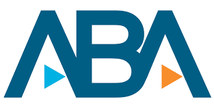|
by Madison Swanson
State bar associations continue to threaten the operations of online legal document providers under the guise of consumer protection through restrictive and unnecessary rules. The states of Washington and Tennessee have both considered resolutions that would impose expensive obligations and strict regulations on OLPs operating in their states. Tennessee House Bill 1411, proposed in February 2019, states that online document providers are not considered to be practicing law so long as they follow the regulations laid out in the resolution. The regulations, however, were incredibly strict, expensive, and unnecessary. They would greatly raise the price the consumer pays for the same products and services. Thanks to pressure from Responsive Law and our allies, HB 1411 was withdrawn from consideration. Amendments to General Rule 24 proposed by the Washington State Practice of Law Board (POLB), however, still stands and is open for comment until the end of August. The General Rules of the Washington State Bar dictate the general conduct of courts and lawyers, and Rule 24 defines the practice of law. This amendment, unlike HB 1411, doesauthorize the activities of online legal document preparers as the practice of law so long as they follow the regulations laid out in the potential new rule. The regulations the Washington POLB proposes are again unnecessary and would threaten the growth, profitability, and usefulness to the consumer of these document providers. Read HB 1411 here and the GR 24 amendment here.
4 Comments
by Madison Swanson  Responsive Law recently participated in a working group to amend American Bar Association Proposed Resolution 10A, a set of best practices for online legal document providers (OLPs). In July of last year, the New York State Bar Association (NYSBA) proposed a set of crippling regulations for OLPs that was subsequently withdrawn after Responsive Law assembled a coalition of opponents to block the proposal. The NYSBA amended the resolution and proposed it again this past January, but Responsive Law still found many issues with the best practices the revised 10A promulgated. Therefore, we again mobilized our allies to oppose Resolution 10A. In response to our opposition and the comments we submitted, the ABA convened industry and consumer groups and bar representatives to address outstanding issues with the Resolution. At this meeting, we made it clear what our main concern with this resolution was: many of the proposals created expensive and unnecessary obligations for OLPs that would raise the cost of the services that OLPs offer. The NYSBA and the ABA claimed that the best practices in Resolution 10A would protect consumers. In reality, they would negate the major advantage of OLPs, which is to increase access to understandable and affordable legal tools. Overall, Responsive Law is pleased with the changes that were made to Resolution 10A during the working group process. Many of the superfluous regulations that would have increased the cost of using OLPs were stricken and many of the remaining best practices create advantages for the consumer. Our work, however, is not done. Not only are there several outstanding issues, but Responsive Law takes issue with the premise of the resolution. We do not believe that the ABA, a trade organization, should be promulgating best practices for its competitors. Proposed Resolution 10A, with the changes made during the working group process, will be presented again to the ABA House of Delegates in August 2019. RI Supreme Court to Responsive Law: Please File a Formal Motion Asking Permission to File Informally12/20/2018 by Tom Gordon
In Rhode Island, the state’s Unauthorized Practice of Law Committee—which consists of thirteen lawyers and one member of the public—recently declared that lawyers were required for real estate closing duties traditionally (and competently) performed by real estate agents. Of course, requiring a lawyer for these transactions does nothing to protect the public, but it does add to the already high cost of purchasing a home. by Richard S. Granat
The New York State Bar has withdrawn its proposed resolution regarding online legal document preparation from consideration by the American Bar Association House of Delegates because of widespread opposition by other ABA entities. These other ABA entities were not given notice of the proposed resolution and did not have sufficient time to develop their substantive positions and make their views known. However, the New York State Bar is intending to resubmit the same resolution to the House of Delegates for approval at the ABA mid-year meeting (February 2019) in Las Vegas. by Richard S. Granat
Online legal document providers would be regulated under a resolution proposed by the New York State Bar Association and the New York County Lawyers Association to the American Bar Association for approval at its annual meeting in Chicago this August. The proposal was submitted without providing an opportunity for comment and review by interested parties and other ABA entities. An annotated version of the Resolution with Responsive Law's comments can be found here. |
Blog History
Archives
February 2024
Categories
All
|
-
Advocacy
- Requiring Public Oversight of Lawyer Regulation
- Non-Lawyer Assistance and Unauthorized Practice of Law >
- Alternative Business Structures
- Lawyer Advertising
- Online Legal Services and Multijurisdictional Practice
- ABA Commission on the Future of Legal Services
- ABA Commission on Ethics 20/20
- Protecting Client Rights
- Limited Scope Representation ("Unbundled" Legal Services)
- Simplifying Courts
- Blog
- Issues
- About Us
- Donate
- Top Stories 2023
- Legal Help
- Report Card
- Receive Updates

 RSS Feed
RSS Feed